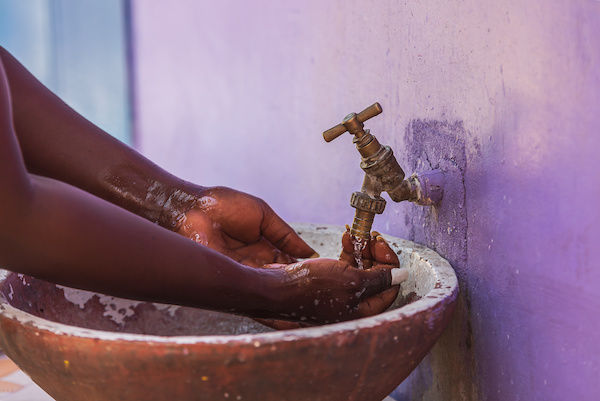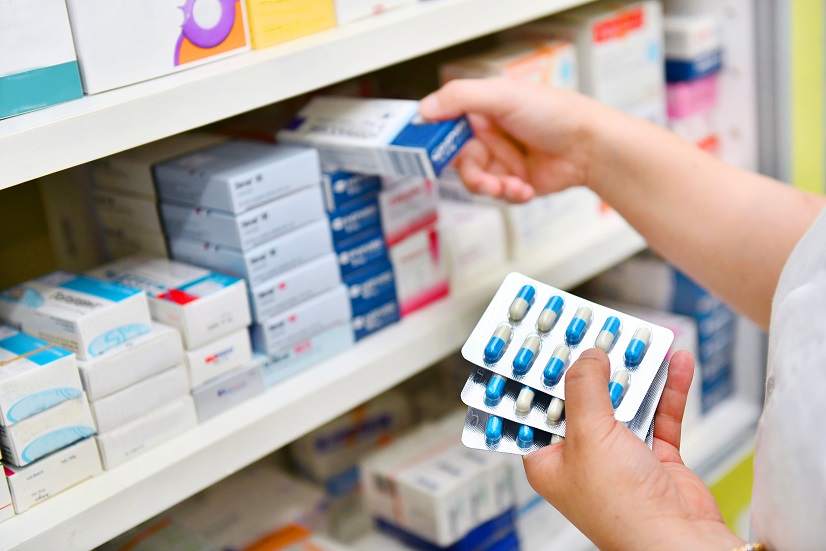Recommended
The UK has proud history as a global leader in the fight against bacterial infections. It was a Yorkshireman, John Snow, who showed that London’s 1854 cholera outbreak spread though the city’s water systems rather than through the air. This, in part, led to a big push in the latter half of the 19th-century to improve sanitation and hygiene. In 1870, London became one of the first major cities in the world to have a sewage system that drained into the sea. More than 13,000 miles of tunnels were built under the city, which still keep residents safe from disease today. And in the 20th-century, British scientists discovered penicillin, helping to pave the way for the creation of the first antibiotics.
In the 1940s antibiotics seemed like a miracle cure, that could, in days, cure patients who previously had no chance of survival. But these drugs are not infallible. And bacteria have evolved defences—developing antibiotic resistance—a huge problem that kills 1.27 million people a year globally.
As antibiotics started to fail, the UK again stepped up to find solutions to the problem. In 2014, the Review into Antimicrobial Resistance (AMR) led by Lord Jim O’Neill was launched, followed by an ambitious surveillance programme, the Fleming Fund, to track AMR across the world. David Cameron’s government also used its influence to keep AMR on the global agenda. Cameron put AMR on the agenda for meetings he had with Barack Obama, Angela Merkel, Xi Jinping, Narendra Modi, and countless other leaders, forcing them to engage in the topic and confront the realities of a world without antibiotics. It was astonishing to see the impact that the UK government could have on influencing the world for the better.
The All-Party Parliamentary Groups on Antibiotics and Water, Sanitation and Hygiene (WASH) is currently holding an inquiry into the link between antimicrobial resistance and WASH, with a particular focus on what the UK can do to better support the world’s poorest countries to improve WASH. The inquiry should be watched closely by both the new government, to help it decide on its global priorities, and by the Labour Party, to help determine what its approach to development should be, if elected.
Improved WASH can save countless lives. Globally, one million mothers and newborns die yearly from infections immediately following birth. 1.7 million children under the age of five die of pneumonia or diarrheal diseases. We could greatly reduce, and possibly half these deaths by simply increasing access to soap and clean water. Respiratory infections like colds and flus could be almost halved by getting people to wash their hands regularly. It is estimated to cost less than $1 per person, per year to get all households in the world’s 46 least developed countries handwashing facilities. At about 8.6 percent of the UK’s overseas development aid budget, this is undoubtedly great value for money (though sanitation systems will cost more). As the Director General of the World Health Organization, Dr Tedros Adhanom Ghebreyesus, has said, “improving hand hygiene can generate savings in health expenditure up to fifteen times the cost.” Similarly, the economic benefits from improved sanitation are five times greater than the cost.
Improved WASH would also slow—if not prevent—the rise of antibiotic resistance. Firstly, by preventing people from getting sick, fewer people would need antibiotics and there would be less opportunity for resistance to grow. Secondly, if a resistant bacterial strain emerged it would be less likely to pass between people, and thus less likely to take hold in the population.
In giving evidence to the joint parliamentary inquiry on WASH, we argued that the UK should make fighting AMR a priority in its overseas aid budget. We don’t need complicated policy solutions. Instead, we need to work with countries and NGOs to build the basic infrastructure that low- and middle-income countries need to reduce preventable deaths and dependency on antibiotics. The highest priority countries are those with the greatest epidemiological burden. Hot, densely populated regions tend to be those most at risk. We should prioritise getting WASH to hospitals lacking in clean running water. As this is where resistance infections are most common, due to the combination of high antibiotic use, and immune-compromised people.
It is vital that the UK leads by example; we need greater scrutiny on the use of antibiotics, rather than less, if we are to contain the threat of AMR, and by devoting a small portion of our overseas aid budget to AMR and WASH we could achieve so much good for the world. It would not just help save lives of the world’s poorest, but it would play to Britain strengths as a leader in global health, and help to keep us all safe from drug resistant infections.
Disclaimer
CGD blog posts reflect the views of the authors, drawing on prior research and experience in their areas of expertise. CGD is a nonpartisan, independent organization and does not take institutional positions.







